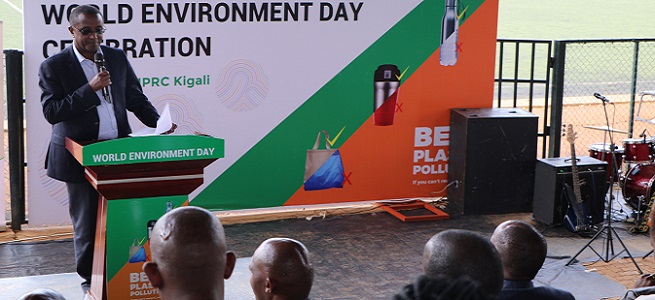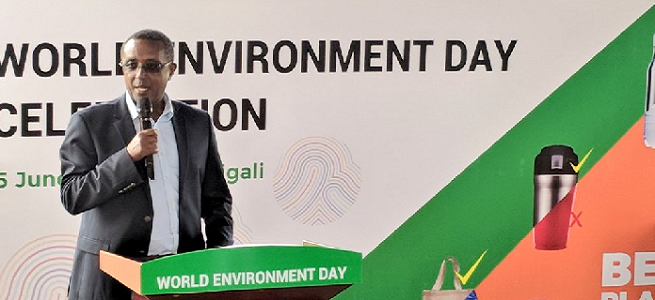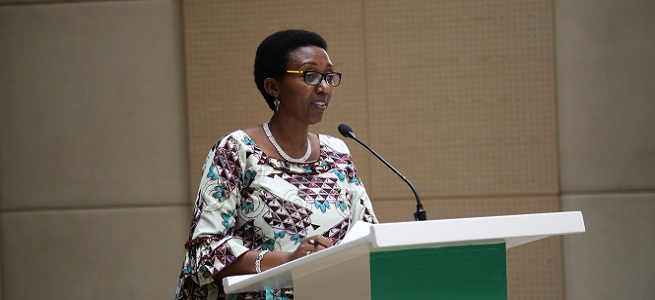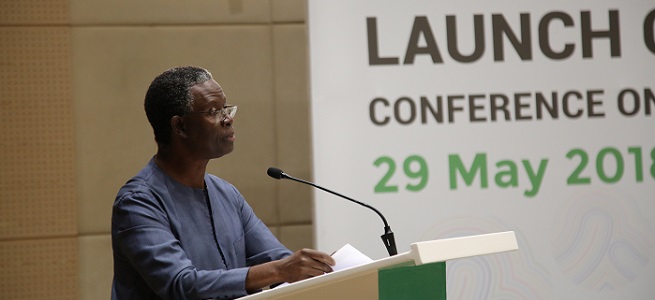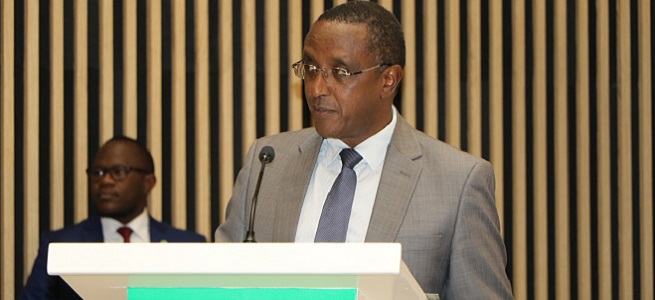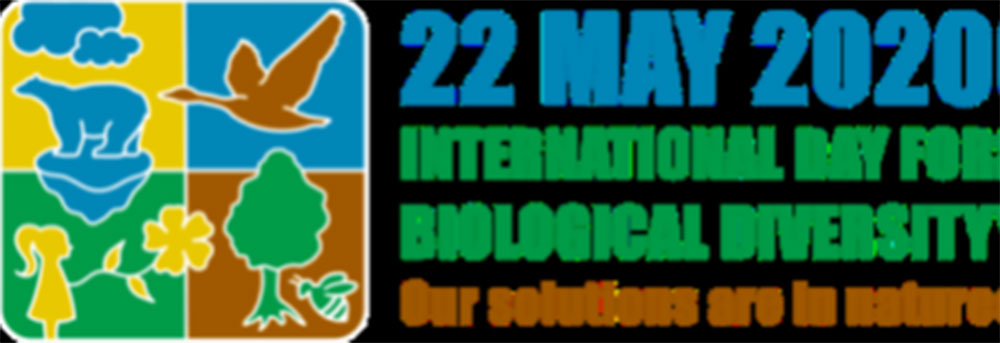
International Day for Biological Diversity 2020
We are celebrating the International Day for Biological Diversity (IDB) on 22 May 2020, under the theme is "Our solutions are in nature". The United Nations, in year 2000, proclaimed May 22 as the International Day for Biological Diversity (IDB) to increase understanding and awareness of biodiversity issues. The theme of the yearemphasizes hope, solidarity and the importance of working together at all levels to build a future of life in harmony with nature.
The global community is called to re-examine its relationship to the natural world because, despite all our technological advances we are completely dependent on healthy and vibrant ecosystems for clean air, water, food, medicines, clothes, fuel, shelter and energy, etc to sustain a healthy life and sustainable economy. Scientific assessments at global level have shown that the nature is in crisis, we are losing species at a rate 1,000 times greater than at any other time in recorded human history and one million species face extinction. In the last century, a combination of population growth and reduction in ecosystems and biodiversity has culminated in unprecedented opportunities for pathogens to pass between animals and people.
In recent decades, zoonotic diseases–those transferred from animals to humans–have gained international attention. Ebola, avian influenza (or bird flu), H1N1 flu virus (or swine flu), Middle East respiratory syndrome (MERS), Rift Valley fever, sudden acute respiratory syndrome (SARS), West Nile virus, the Zika virus–and now, the novel coronavirus COVID-19, have all either caused or threatened to cause major pandemics, with thousands of deaths and billions in economic losses. If nothing is done COVID-19 will not be the last pandemic.
In 2016, the United Nations Environment Programme (UNEP) pointed out that 75 per cent of all emerging infectious diseases in humans are zoonotic and that these zoonotic diseases are closely interlinked with the health of ecosystems. Addressing zoonotic disease emergence requires addressing its root cause–primarily, the impact of human activities and climate change on ecosystems. The zoonosis are opportunistic and thrive where there are changes in the environment (destruction of habitat), changes in animal or human hosts, or changes in the pathogen, itself.
To face all those issues, the Government of Rwanda has shown its understanding of how vital biodiversity is for the livelihoods and sustainable economic development by integrating sustainable management of environment and natural resources in its long term vision for economic development and poverty eradication and medium term strategies to address economic development to and high quality life standards of its people. Those high level policy documents include clear indicators on increasing the area to maintain biological diversity and forest cover as well as other indicators to achieve the national commitments to the Rio Conventions (UN CBD, UNFCCC and UNCCD) and the SDGs.
This understanding was also translated into various policies (biodiversity policy, wildlife policy, forestry policy, water policy and land policy) and strategies related to biodiversity conservation and climate change adaptation and mitigation such as the National Biodiversity Strategy and Action plan under the CBD, National Green Growth and Climate resilience Strategy as well as the Nationally Determined Contributions under the Paris Agreement (UNFCCC). All those documents inform each other and are used to develop sectoral strategic plans.
The government is emphasizing the ecosystem-based solutions for addressing biodiversity loss, climate change and land degradation simultaneously as well as mainstreaming biodiversity in economic sectors. To test efficiency of integrating poverty eradication, climate change, disaster risk reduction, combating land degradation and desertification, and biodiversity conservation, our country has initiated different programmes:
- The natural wealth accounting and valuation of ecosystem services. The results of this initiative are serving to raise the flag on how natural resources as well as ecosystems goods and services are crucial for our economic growth and poverty eradication, and ultimately to integrate them into planning and accounting processes, poverty reduction strategy and into national economy.
- The Forest and Landscape Restoration Programme and Sustainable Food for Agriculture, these initiatives are being implemented in collaboration with IUCN and FAO. This programme is also meant to contribute to achievement of national commitment to Bonn Challenge
- Revenue sharing programme for communities neighboring national parks
- Increasing area under biodiversity conservation by creating new protected areas and improving management of existing parks
- Restocking national parks with exctinct species to increase diversity
- Ecosystem based adaptation projects
- Creating green cities that are resilient using nature based solutions to face impacts of climate change, increase biodiversity, create green jobs and create more liveable cities
As Rwandans, let us join the global community to “Build Back Better” by using our time to increase the resilience of communities and “bend the curve” on biodiversity loss through fostering nature-based solutions being from traditional knowledge or technology for the benefit of humans and all life on Earth.
Topics
More posts
Together, We can put an end to single-use plastics
The following was adapted from remarks given by the Minister of Environment, Vincent Biruta, at World Environment Day celebrations in Rwanda on 5 June…
Ijambo rya Ministiri w’Ibidukikije ku Munsi Mpuzamahanga w’Ibidukikije
IPRC Kigali | 5 Kamena 2018
Nyakubahwa Umuyobozi wungirije w’Umujyi wa Kigali ushinzwe ubukungu n'iterambere
Meya w’Akarere ka Kicukiro
…
Refusing single use plastics will make life and the planet better
Rwandans have been encouraged to avoid single-use plastics in order to reduce environmental pollution and save the planet from the dangers of plastic…
Remarks by the Director General of REMA at Launch of the National Environment Week
Hon. Minister of Environment
Hon. Minister of Trade & industries
One UN country Residence Coordinator
CEO PSF
Development Partners
Government…
Remarks by UN Resident Coordinator Dr Fode Ndiaye at Launch of National Environment Week
Nyakubahwa Minister of Environment, Dr. Vincent Biruta,
Honorable Ministers here present,
Senior Government Officials here present,
Honorable…
Remarks by Minister of Environment at Launch of National Environment Week
Fellow Ministers,
One UN Resident Coordinator,
Private Sector Federation Chairperson,
Distinguished guests,
Ladies and gentlemen
Mwaramutse!
It…
